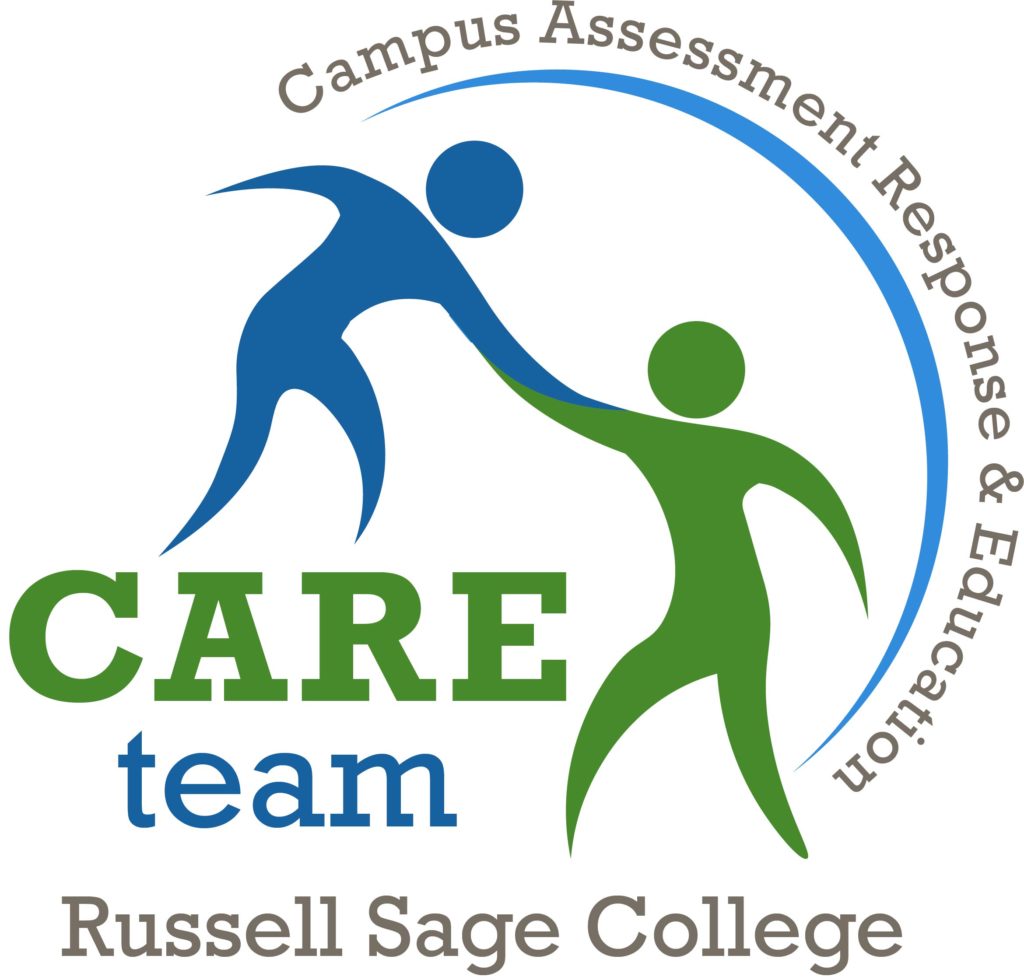CARE Team Mission
The campus CARE Team engages in proactive and collaborative approaches to identify, assess and mitigate risks associated with students, faculty, staff and visitors exhibiting concerning behaviors, thoughts, or circumstances. By partnering with members of the community, the CARE Team strives to promote individual student, faculty and staff well-being and success while prioritizing community safety.
The team consists of staff from Student Wellness, Student Success, Residence Life, Public Safety, Title IX, Athletics and the Deans of Students. Other areas are consulted and brought into discussion on an as-needed basis.
Why CARE?
Nationally, BeTA and CARE are the most common names for teams that identify and manage risk on campus proactively. CARE evokes a sense of community and offers some clarity in terms of advertising, which is why we chose its use for this manual. While CARE frequently stands for Campus Assessment Response and Education, we find it more helpful as a group of people who simply CARE for the community.

CARE Team Vision
The vision of the CARE Team is to provide a safe and supportive learning environment while assisting in intervening with someone before their behaviors reach a critical level.
The role of the CARE Team is to:
- Provide consultation and support to faculty, staff, administration and students in assisting individuals who display concerning or disruptive behaviors;
- Gather information to assess situations involving individuals who display concerning or disruptive behaviors;
- Educate and empower the campus community to recognize, report and effectively address aberrant, dangerous, threatening and concerning behaviors;
- Recommend appropriate intervention strategies;
- Connect individuals with needed campus and community resources; and
- Monitor ongoing behavior of individuals who have displayed disruptive or concerning behavior.
Submitting a CARE Report
Sage uses an online referral form that all community members can utilize to refer troubling or concerning behavior. This referral will go to the CARE Team for discussion and referral.
General concerns about a student that do not rise to the level of a CARE report, or any questions about the CARE Team, can be referred to the Dean of Students’ office at 518-244-2207 or [email protected].
All immediate threats or concerns about impending violence should be directed to Public Safety via the Emergency Dispatch Center at 518-244-3177.
In This Section

